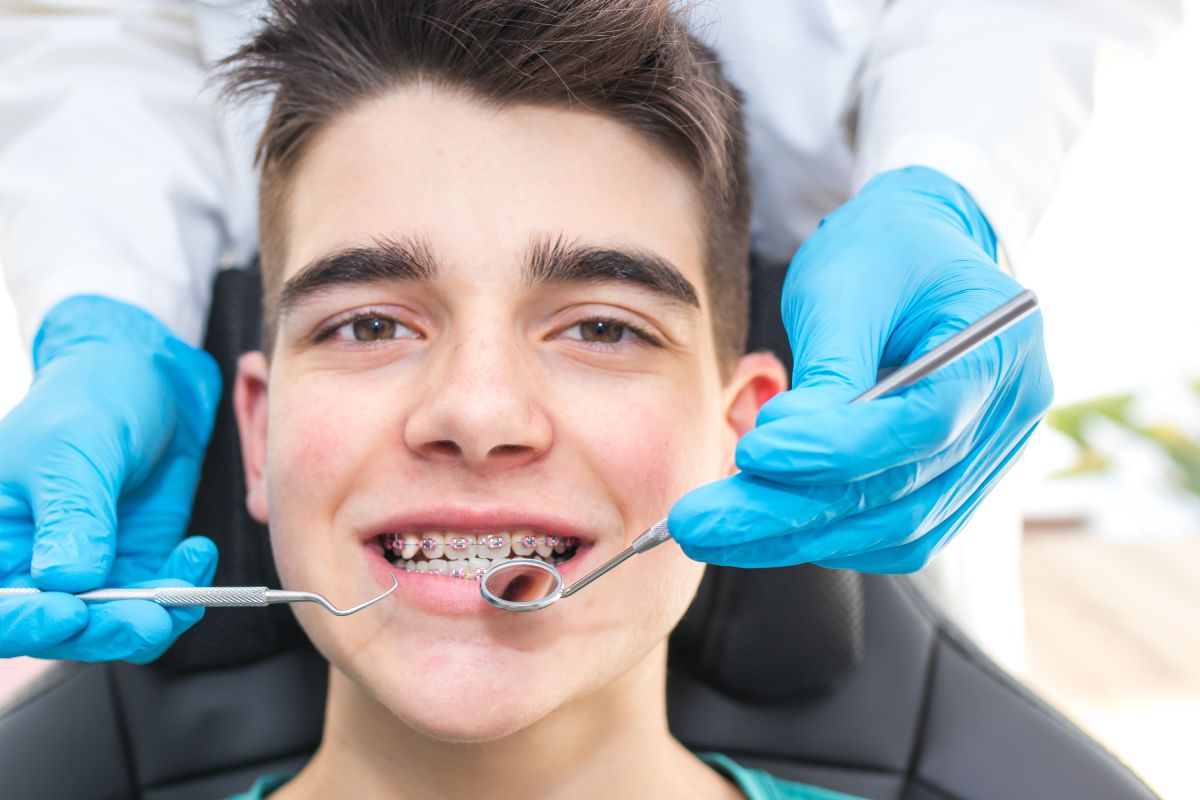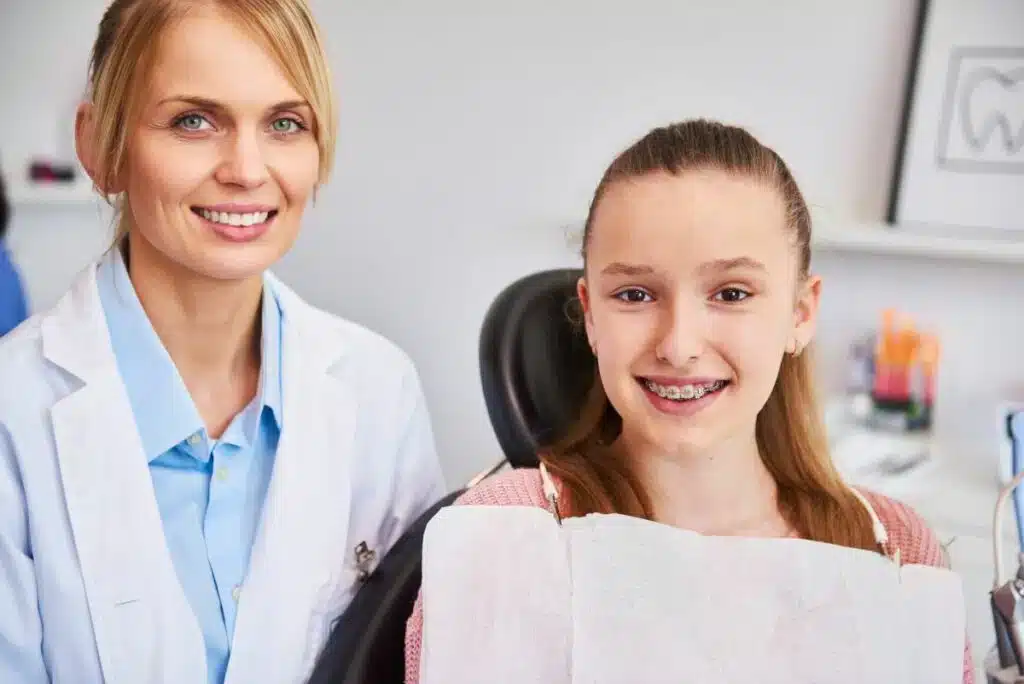Not known Factual Statements About Causey Orthodontics
Not known Factual Statements About Causey Orthodontics
Blog Article
Causey Orthodontics Things To Know Before You Get This
Table of ContentsThe Best Strategy To Use For Causey OrthodonticsCausey Orthodontics for DummiesThe Only Guide to Causey OrthodonticsCausey Orthodontics Can Be Fun For EveryoneUnknown Facts About Causey OrthodonticsCausey Orthodontics Fundamentals ExplainedAbout Causey Orthodontics
What is the distinction between a dentist and an orthodontist? To address a question that is typically asked, both dental professionals and orthodontists assist people get better dental health, albeit in different methods. It aids to bear in mind that dentistry is an instead broad science with various clinical expertises. All dental professionals, including orthodontists, treat the teeth, gum tissues, jaw and nerves.
Orthodontists and dental professionals both give dental take care of patients. Orthodontists can operate in a dental office and provide the very same treatments as other dental professionals. You can assume of both medical professionals who treat periodontal and teeth troubles. The major distinction is that coming to be an orthodontist requires a specific specialized in treating the imbalance of the teeth and jaw.
All about Causey Orthodontics
An orthodontist is a dental professional that has undergone training to specialize in the diagnosis, avoidance and treatment of abnormalities in the jaw and teeth. They can likewise identify possible problems in teeth placement that might develop when conditions are left unattended (orthodontist services).
This includes all the required education to end up being a general dental practitioner. According to the American Trainee Dental Organization (ASDA), it means you will certainly require to have either a Physician of Medicine in Dental Care (DMD) or a Medical Professional of Dental Surgical Treatment (DDS). To put it simply, orthodontists need to finish oral institution and afterwards get an orthodontics specialty education and learning.
Some orthodontists additionally get their masters in craniofacial biology. These programs focus on 2 particular locations or disciplines: Dentofacial Orthopedics: This research study concentrates on directing teeth and jaw growth.
Everything about Causey Orthodontics

 These include apparatus such as dental braces, retainers and Invisalign. What does an orthodontist do, and what do they focus on? The overall goal of an orthodontist is to enhance a patient's bite. Not every person is born with straight teeth, and an orthodontist will certainly make sure that clients get evenly spaced straight teeth.
These include apparatus such as dental braces, retainers and Invisalign. What does an orthodontist do, and what do they focus on? The overall goal of an orthodontist is to enhance a patient's bite. Not every person is born with straight teeth, and an orthodontist will certainly make sure that clients get evenly spaced straight teeth.
More About Causey Orthodontics
The American Organization of Orthodontists advises your first check up by age 7. You'll need to see your orthodontist if you have a misalignment in your teeth, likewise called malocclusion. Also, if you observe irregular bite patterns, a slightly irregular jaw, or when your teeth are overcrowded, you will likely need orthodontic therapy.
In enhancement, we use flexible therapy routines, versatile payment alternatives and an enjoyable, enjoyable experience.
An orthodontist is a dental expert trained to diagnose, protect against, and deal with teeth and jaw abnormalities. They fix existing problems and are educated to identify issues that may develop in the future. Orthodontists work with people of all ages, from children to adults. Individuals typically associate a perfect smile with healthiness.
An Unbiased View of Causey Orthodontics
Malocclusion, or misaligned teeth, can cause dental issues, consisting of dental caries, gum condition, and tough or agonizing eating. Not everyone is born with straight teeth. If you have a negative bite or huge areas between your teeth, you may intend to speak with a dental expert concentrating on orthodontic care.
(Photo Credit Scores: DigitalVision/Getty Images) Orthodontists utilize dealt with and removable oral tools, like dental braces, retainers, and bands, to alter the placement of teeth in your mouth. Orthodontic treatment is for dental problems, including: Uneven teethBite issues, like an overbite or an underbiteCrowded teeth or teeth that are too much apartJaw misalignmentThe goal of orthodontic therapy is to improve your bite.
Causey Orthodontics Fundamentals Explained

All orthodontists are dental practitioners, yet not all dental professionals are orthodontists. Orthodontic residency programs offer intensive, focused guideline for oral specialists. They concentrate on 2 locations: Just how to properly and safely move teeth Just how to effectively lead advancement in the teeth, jaw, and faceOnce an orthodontist has finished training, they have the alternative to come to be board licensed.
Malocclusion leads to tooth congestion, an irregular jaw, or uneven bite patterns. Malocclusion is normally treated with: Your orthodontist connects metal, ceramic, or plastic square bonds to your teeth.
More About Causey Orthodontics
If you have only minor malocclusion, you may be able to use clear dental braces, called aligners, as opposed to standard dental braces. Some people require a headwear to aid relocate teeth right into line with pressure from outside the mouth. After braces or aligners, you'll need to use a retainer. A retainer is a custom device that keeps your teeth in position.
Report this page